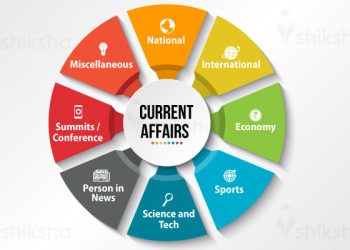In today’s digital business world, statisticians and mathematicians play an essential role in collecting, analyzing and interpreting ‘big data’. With the US Bureau of Labor Statistics (BLS) forecasting a 35% rise in job openings in this field during the next five years, statisticians can secure lucrative, rewarding, long-term roles at numerous big tech firms and other leading enterprises.
In order to become a top statistician, there are certain fundamental skills that are required to get ahead. Strong mathematical abilities, computer skills, critical thinking and problem-solving are chief among them. More specifically, statisticians need to be able to demonstrate expertise in activities such as predictive modeling, parametric estimation and machine learning.
These skills will help you to secure stats-based roles and then thrive in them. Statisticians are in demand in a range of different sectors. You could apply for jobs in finance, education, healthcare and medicine, government, sports, and marketing and advertising, to name but a few. The majority of industries now require workers to interpret and present quantitative information to managers and leaders to improve decision-making.
This is true at Netflix, which prefers applicants to have a strong technical understanding of statistics and the creativity to approach data models in different ways to achieve better outcomes. Statisticians also have to use their skills to advise on their findings and offer strategic recommendations. It is a demanding field, so you will need to attain the right qualifications to get ahead.
Completing a Master’s in Applied Statistics is the best means of acquiring the skills, experience and qualifications to become a leading statistician. If you already have a bachelor’s degree and a strong math background, you can inquire today and get a comprehensive digital program guide from a leading online university. Online learning is ideal for full-time students and those who want to fit education around professional commitments.
In terms of specific skills that statisticians require, Zippia says that the six most common are:
- Data analysis
- R (programming language)
- Statistical data
- Logistic regression
- Research projects
- Python (programming language)
Most experts agree that programming ability in R and Python are ‘essential’ skills for a statistician and that they should be complemented by at least a basic understanding of data science, machine learning and other mathematical concepts. With these skills, you can potentially secure a role as a:
- Statistician
- Statistics professor
- Data scientist
- Data analyst
- Electrical engineer
- Business intelligence analyst
- Senior financial analyst
- Market research analyst
All of these careers are lucrative, with average annual salaries of around $100,000 or more depending on the specific role. Your career prospects will obviously be enhanced if you learn many of the fundamental skills that employers are looking for. Let’s look at these in more detail.
Data analysis
Data analysis is a broad skill and covers areas such as managing projects, gathering data, using statistical modeling to analyze that data, and then presenting the results. You will also need to validate these results to ensure their integrity and communicate the results to both expert workers in your own team and non-technical end users such as managers. These are all skills you can learn with an online master’s degree that covers areas such as advanced statistical methods and real-world problem-solving.
Programming – R and Python
Getting to grips with programming and technology is essential for statisticians. You need to be comfortable using industry-standard software such as R and Python. R is a programming language that will enable you to conduct in-depth data analysis to assess risks, deliver statistical estimates and create reports. Python also has multiple use cases, though it is particularly useful for data scrubbing to ensure data quality and for extracting and ordering large data sets. If you have an interest in coding and programming, then becoming a statistician is a great career path.
Statistical data
Statistical data skills are also crucial and involve the collection of numerical data with the view to it being edited, aggregated and used for different purposes. Statisticians in the finance sector, for example, might have to prepare and analyze statistical data to uncover trends and find the underlying reasons behind economic conditions. Both strong mathematical abilities and analytical and problem-solving skills need to be combined here for core work tasks. Zippia found that statistical data is the third most common skill of resumes after ‘data analysis’ and ‘R’.
Logistic regression
Specific analysis methods are also a requirement. One of these, logistic regression, is used regularly by statisticians to analyze data and predict a ‘binary’ outcome. Logistic regression specifically estimates the likelihood of an event occurring using a logistical model. This is an advanced skill that is often used for risk analysis and for evaluating different outcomes such as the potential success of marketing strategies. The methods you use here will help companies make better decisions about core processes.
Research projects
Statisticians need to show that they have been involved in research projects, either as the leader or as a consultant, and have been able to provide evidence to end users about the findings. Employers also want applicants that can show that they have gathered data to meet specific research objectives and used a wide range of sources to improve the scale and quality of results. Zippia found that ‘research projects’ is the fifth most common skill on the resumes of statisticians in 2022.
Other fundamental skills that statisticians require include non-technical ones such as communication, leadership and intellectual curiosity. The latter can help with experimental design, which is another technical skill that many statisticians possess. Infosys’ global chief data scientist Dr. N. R. Srinivasa Raghavan notes: “Data science is more than just number crunching: it is the application of various skills to solve particular problems in an industry.”
This is true for many statistics-based roles, so try to gain a broad range of skills that can be applied to problem-solving. With these fundamental skills, which are best learned during an online master’s degree, you can then start inquiring about and applying for high-paying roles that will put you on the path to your dream career in this field.





